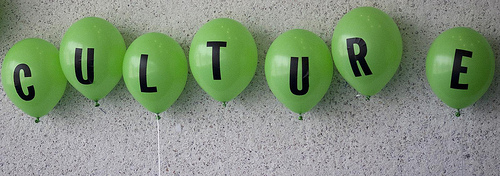 Recently I was reading a career book when one sentence jumped out at me. “In many ways, conducting a job search is like adapting to a foreign culture.” Aha! I thought. This is exactly what career exploration and job searches are like for a number of the international students I advise (actually, for almost all students to some extent, since most students have not yet had full-time professional jobs, so it can be a “foreign culture” to them too).
Recently I was reading a career book when one sentence jumped out at me. “In many ways, conducting a job search is like adapting to a foreign culture.” Aha! I thought. This is exactly what career exploration and job searches are like for a number of the international students I advise (actually, for almost all students to some extent, since most students have not yet had full-time professional jobs, so it can be a “foreign culture” to them too).
Adapting to new situations is not unusual for university students. Luckily, most of you are able to rely on the advice of friends to interpret what we advisors suggest to you during orientation sessions and workshops. Some of you are brave enough to raise your hands and ask us, “What exactly do you mean?” or “Can you give us an example of how yo u would actually do that?” Often, it seems easier just to ask your friends after the session. The problem is that, depending on the topic (careers in this case), your friends may not know much more than you do. (Or what they know may be very specific to their individual experiences.)
u would actually do that?” Often, it seems easier just to ask your friends after the session. The problem is that, depending on the topic (careers in this case), your friends may not know much more than you do. (Or what they know may be very specific to their individual experiences.)
What I appreciated about this book is that it gives clear and specific instructions about how to actually do whatever is suggested. It doesn’t assume that the reader has the experience (or the social skills) to inherently know how to implement many career suggestions. It even gives examples of common mistakes.
Here’s one:
“Adam is like many job seekers I coach: frustrated and discouraged. He graduated near the top of his class with a degree in computer science. With some help from his father, Adam put together a resume, drafted a cover letter, and began applying for software testing jobs on internet job boards. After sending more than 40 resumes, Adam received an invitation for a telephone interview. Confident about his technical ability, Adam anticipated no problems answering questions.
The interview did not go as planned. Adam hadn’t kept a copy of the job advertisement, and had a hard time answering specific queries about his qualifications. Since he hadn’t done any research on the company, he wasn’t prepared to explain why he wanted to work there. When asked about whether he had experience using a specific tool, Adam responded, “No,” even though he was proficient with one that was very similar (and could have called attention to this.) The call lasted ten minutes.” (Bissonnette, 2013, p. 16).
Sound familiar to anyone? This skilled young graduate didn’t realize that he was entering a foreign culture, the world of work. All of us who explore new cultures need to learn their languages and norms in order to interact with the people native to those cultures. Here’s one cultural example for Adam’s case. Job applicants need to understand that simply wanting to work at a company is important to that employer. It helps the employer determine if you fit their company culture. Yes, you need to have the skills necessary for the work, but once an employer has determined that you have the skills they need, they want to understand why you want to work there. Responses such as, “Because you’re a famous company” or “I’ve always wanted to work for a company like yours” are not sufficient. Your response needs to indicate both what you know about the company and that you’re enthusiastic about working for them. Adam could have said something like, “For one of my class projects we tested a programming language you use, so I was interested in reading more about your company when I saw this job posting. When I read about your projects, the languages you use, and how you invest in new employees, I knew this would be a good fit.”
that employer. It helps the employer determine if you fit their company culture. Yes, you need to have the skills necessary for the work, but once an employer has determined that you have the skills they need, they want to understand why you want to work there. Responses such as, “Because you’re a famous company” or “I’ve always wanted to work for a company like yours” are not sufficient. Your response needs to indicate both what you know about the company and that you’re enthusiastic about working for them. Adam could have said something like, “For one of my class projects we tested a programming language you use, so I was interested in reading more about your company when I saw this job posting. When I read about your projects, the languages you use, and how you invest in new employees, I knew this would be a good fit.”
The book goes on to provide specific examples and definitions and to point out common errors. As another example, there is a section on mistakes made during interviews that focuses on four common errors: “long, rambling responses to questions,” “very, very short answers to questions,” “being unprepared,” and “not showing enthusiasm.” I know from the many mock interviews I’ve conducted that these are frequent mistakes among all students—in any class year, in any degree. Just explaining your skills isn’t enough. Preparation is essential so that you know what types of answers are appropriate and that you know a lot about the job and company. Being authentically enthusiastic is key.
So, for full disclosure now. The reason this book so carefully explains the norms of this “foreign culture” and provides many examples, clear explanations, and detailed worksheets is that the targeted audience of this book is those of us who find social skills difficult to understand and master—namely those on “the spectrum” with Asperger’s Syndrome.
I’m not trying to say that I think most students struggle with development of basic social skills. I am trying to say that this book might be helpful to many students, especially those who want to understand how and why to communicate with potential employers—in other words, how to understand the employer’s culture. The author attempts to “explain the ‘whys’ behind aspects of the job search that many people with Asperger’s Syndrome find confusing or silly.” (Bissonnette, 2013, p. 19). How wonderful to have a resource such as this for students on the autism “spectrum” who are exploring their career options! But, I’m also excited that there are tips in this book that I find potentially helpful for any student navigating a “foreign culture,” especially international students who want to find job opportunities in the U.S. Actually, I think many students might benefit from this book’s straightforward advice. For all of us it can sometimes be confusing to understand and adapt to a new culture.
The book is The Complete Guide to Getting a Job for People with Asperger’s Syndrome: Find the Right Career and Get Hired, by Barbara Bissonnette, published in 2013 by Jessica Kingsley Publishers (London and Philadelphia). The quote in my first paragraph above is from Bissonnette, 2013, p. 12. The four examples of interviewing mistakes are from Bissonnette, 2013, p. 136.



 Recently I was reading a career book when one sentence jumped out at me. “In many ways, conducting a job search is like adapting to a foreign culture.” Aha! I thought. This is exactly what career exploration and job searches are like for a number of the international students I advise (actually, for almost all students to some extent, since most students have not yet had full-time professional jobs, so it can be a “foreign culture” to them too).
Recently I was reading a career book when one sentence jumped out at me. “In many ways, conducting a job search is like adapting to a foreign culture.” Aha! I thought. This is exactly what career exploration and job searches are like for a number of the international students I advise (actually, for almost all students to some extent, since most students have not yet had full-time professional jobs, so it can be a “foreign culture” to them too). u would actually do that?” Often, it seems easier just to ask your friends after the session. The problem is that, depending on the topic (careers in this case), your friends may not know much more than you do. (Or what they know may be very specific to their individual experiences.)
u would actually do that?” Often, it seems easier just to ask your friends after the session. The problem is that, depending on the topic (careers in this case), your friends may not know much more than you do. (Or what they know may be very specific to their individual experiences.) that employer. It helps the employer determine if you fit their company culture. Yes, you need to have the skills necessary for the work, but once an employer has determined that you have the skills they need, they want to understand why you want to work there. Responses such as, “Because you’re a famous company” or “I’ve always wanted to work for a company like yours” are not sufficient. Your response needs to indicate both what you know about the company and that you’re enthusiastic about working for them. Adam could have said something like, “For one of my class projects we tested a programming language you use, so I was interested in reading more about your company when I saw this job posting. When I read about your projects, the languages you use, and how you invest in new employees, I knew this would be a good fit.”
that employer. It helps the employer determine if you fit their company culture. Yes, you need to have the skills necessary for the work, but once an employer has determined that you have the skills they need, they want to understand why you want to work there. Responses such as, “Because you’re a famous company” or “I’ve always wanted to work for a company like yours” are not sufficient. Your response needs to indicate both what you know about the company and that you’re enthusiastic about working for them. Adam could have said something like, “For one of my class projects we tested a programming language you use, so I was interested in reading more about your company when I saw this job posting. When I read about your projects, the languages you use, and how you invest in new employees, I knew this would be a good fit.”
 International students enrolled at Penn seek internships and jobs in their home countries, in the United States, in global organizations’ locations around the world, and in other countries. Searching for an internship or job involves many of the same tasks anywhere (identifying one’s strengths and goals, exploring career fields, preparing resumes and cover letters, networking, researching companies, applying, interviewing, and more), but two particular issues make the process different for international students seeking positions in the United States: language skills and immigration issues.
International students enrolled at Penn seek internships and jobs in their home countries, in the United States, in global organizations’ locations around the world, and in other countries. Searching for an internship or job involves many of the same tasks anywhere (identifying one’s strengths and goals, exploring career fields, preparing resumes and cover letters, networking, researching companies, applying, interviewing, and more), but two particular issues make the process different for international students seeking positions in the United States: language skills and immigration issues.